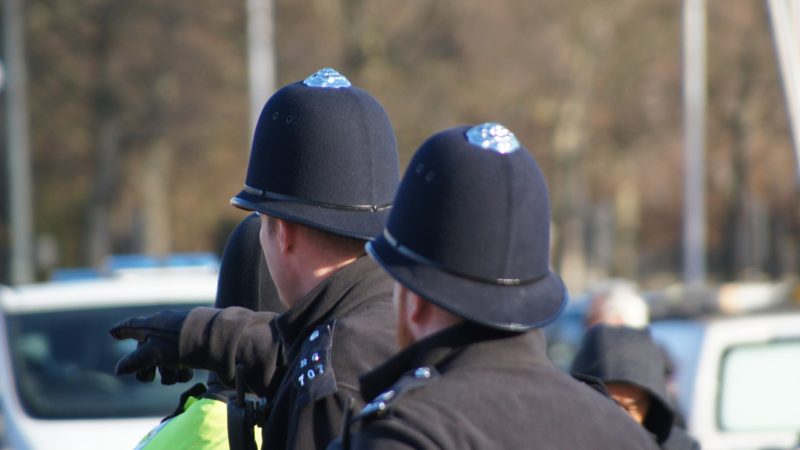
It is over a year since the murder of George Floyd, which prompted reflections about policing and race across the world. In the UK, there was discussion around the systemic racism that persists in policing and the criminal justice system. More than a year on, however, little has changed.
Labour is not in power at Westminster and so has limited ability to change things at the national level. But across the country, Labour mayors and police and crime commissioners have substantial powers over policing at the local level.
Once Labour wins a general election, we can then reform the police and criminal justice system more extensively to take a more progressive approach to reducing crime and protecting the vulnerable. In the meantime, our mayors and PCCs could take concrete steps to improve policing and tackle systemic racism with the seven steps below.
1. Fighting for the return of neighbourhood policing
When Labour was in power, it introduced neighbourhood policing, which meant wards had dedicated teams of police officers and police community support officers. Sir Robert Peel, known as ‘the father of modern policing’ and after whom ‘Bobbies’ are named, developed the model of ‘policing by consent’ whereby the legitimacy of policing comes from transparency of police powers, integrity in exercising those powers and accountability for doing so. This included that ‘the police are the public and the public are the police’, an approach integral to neighbourhood policing based on partnership between communities and the police.
Police knowing the communities they police and vice-versa leads to better policing in relation to everything, from dealing with antisocial behaviour to gathering intelligence on extremism. Neighbourhood policing has a key role to play in this, but unfortunately it has been dismantled by austerity. Labour mayors and PCCs should be pressing for greater funding to support the return of neighbourhood policing while supporting it as much as possible within the constraints of their current resources.
2. High-quality and comprehensive training for police officers
Being a police officer is a difficult and important job. Whether it is in relation to carrying out stop and search or learning from mistakes, police officers should have access to high-quality and comprehensive training. That training needs to allow space not just for knowledge transfer but also for police officers to reflect on and learn from their experiences of policing, which is vital in any role to improving performance. London Labour’s regional conference just passed a motion on ensuring that the Metropolitan Police Service develops a learning culture, and this is something that Labour should champion across the country.
3. An independent complaints process
When the police make mistakes or act badly, it is vital that there are proper systems for redress to try to put things right, learn lessons and take disciplinary action where appropriate. This is important not only for the most serious complaints but for all complaints. Greater accountability in relation to less major issues may help create a culture in the police that reduces the likelihood of more serious things going wrong.
Currently, less serious complaints are usually dealt with by the police themselves, but there are concerns about the robustness of the processes used. PCCs have the power under the Police Reform Act 2002 to take over handling of these complaints from police forces to improve and introduce more independence to the complaint process. This is an approach that every Labour mayor and PCC should be supporting.
4. A liaison and diversion approach to mental health
In the words of the Centre for Mental Health: “Many people in the criminal justice system have complex mental health needs which are poorly recognised and inadequately managed. Large numbers end up in prison: a high-cost intervention which is inappropriate as a setting for mental health care and ineffective in reducing subsequent offending.”
Liaison and diversion aims to address this problem by ensuring individuals with mental health needs have those needs assessed and are diverted away from the criminal justice system where feasible. Labour mayors and PCCs should be pushing for as effective liaison and diversion by their police forces as possible. This should be part of a more general partnership approach between the police, the NHS, schools, housing providers and other public services.
5. A harm reduction approach to policing
Labour mayors and PCCs should push for police forces to take an approach to policing that focuses on reducing harm, for example by reducing the focus on personal use of drugs or taking criminal enforcement action against sex workers.
6. Protecting women and girls
Labour mayors and PCCs should work to put in place a meaningfully funded violence against women and girls strategy for every police force, including funding for specialist domestic and sexual violence programmes and initiatives aimed at perpetrators, such as Drive, as well as action to deal with street harassment. The policing of the Sarah Everard protest was perverse, and Labour mayor and PCCs should be pushing for police forces to police protest events sensitively and inclusively.
7. Promoting racial equality
Labour mayors and PCCs should support enhanced training for police officers in relation to race and equality, including clear targets with public monitoring of targets to make sure that the police represent Britain. There have been a string of investigations and recommendations on how the police operate, particularly in relation to racial discrimination. These include, amongst others, the Scarman report following the 1981 Brixton riots, the Macpherson report looking at the handling of the investigation into the 1993 murder of Stephen Lawrence, numerous reports by the Commission for Racial Equality, the Lammy review and most recently the report published this year into the 1987 murder of Daniel Morgan. Labour mayors and PCCs should be pushing for the implementation of these recommendations by their local police forces.




More from LabourList
‘Labour is being badly misled on housing’
Reeves bets on patience over populism
‘Energy efficiency changes must work for older private renters’